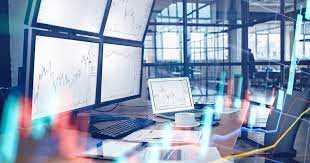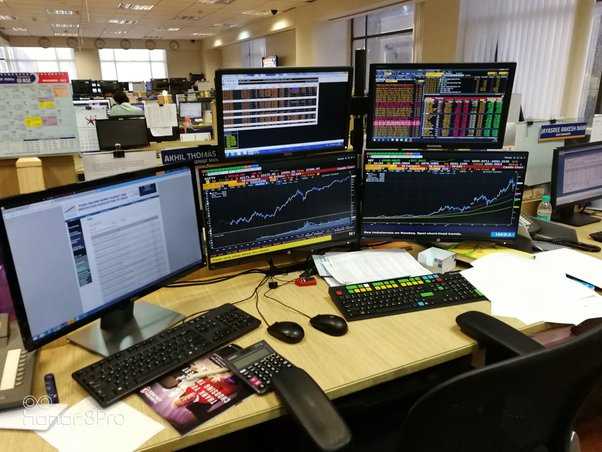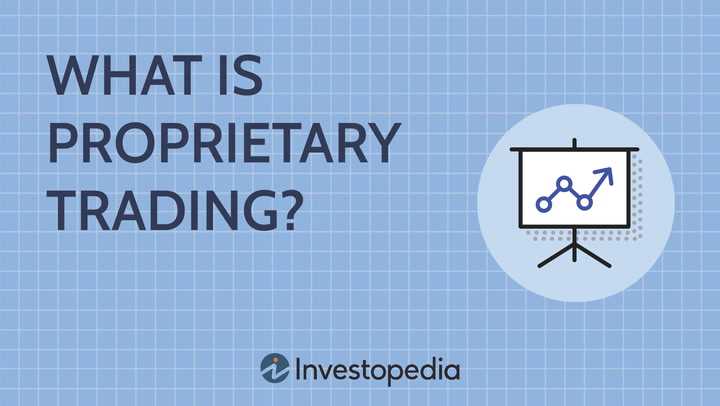What is a Trading Desk?

A trading desk is a specialized workspace where financial professionals, such as traders and analysts, carry out trading activities on behalf of their clients or their own firm. It is a central hub where various financial instruments, such as stocks, bonds, commodities, and derivatives, are bought and sold.
The trading desk is equipped with advanced technology and software that allows traders to monitor market conditions, analyze data, execute trades, and manage risk. It is a fast-paced and dynamic environment where decisions are made quickly to take advantage of market opportunities.
Overall, a trading desk plays a crucial role in the financial industry by facilitating the buying and selling of financial instruments, generating profits for the firm, and providing liquidity to the market.
Definition and Explanation
A trading desk is a specialized area within a financial institution or brokerage firm where various types of financial transactions are executed. It is a central hub for traders who buy and sell securities, such as stocks, bonds, commodities, and derivatives, on behalf of clients or the firm itself.
The trading desk is equipped with advanced technology and software systems that allow traders to monitor market conditions, analyze data, execute trades, and manage risk in real-time. Traders on the desk use their expertise and market knowledge to make informed decisions and generate profits for their clients or the firm.
Role of a Trading Desk

The primary role of a trading desk is to facilitate the buying and selling of financial instruments. This involves executing trades based on client orders, market trends, and investment strategies. Traders on the desk closely monitor market movements, news, and economic indicators to identify trading opportunities and make timely decisions.
In addition to executing trades, trading desks also play a crucial role in managing risk. Traders assess the potential risks associated with each trade and implement risk management strategies to protect the firm’s capital and minimize losses. They may use various risk management techniques, such as hedging, diversification, and position sizing, to mitigate market volatility and uncertainty.
Types of Trading Desks
There are several types of trading desks, each specializing in different financial instruments or trading strategies. Some common types of trading desks include:
- Equity Trading Desk: Focuses on buying and selling stocks and other equity securities.
- Fixed Income Trading Desk: Deals with bonds, treasury bills, and other fixed income securities.
- Foreign Exchange (Forex) Trading Desk: Handles currency trading and exchange rate fluctuations.
- Derivatives Trading Desk: Specializes in trading options, futures, and other derivative instruments.
These are just a few examples, and there are many other specialized trading desks based on specific asset classes or trading strategies.
What Does a Trading Desk Do?

A trading desk is a specialized workspace where financial professionals execute trades on behalf of clients or their own firm. It is the central hub for trading activities and plays a crucial role in the financial markets.
Execution of Trades
The primary function of a trading desk is to execute trades in various financial instruments, such as stocks, bonds, currencies, commodities, and derivatives. Traders on the desk use their expertise and market knowledge to buy or sell these assets based on market conditions, client orders, or the firm’s trading strategies.
Market Analysis and Research
Trading desks are responsible for conducting market analysis and research to identify potential trading opportunities. Traders analyze market trends, economic indicators, news events, and other factors that can impact the prices of financial instruments. This analysis helps traders make informed decisions and develop trading strategies.
Risk Management
Another important role of a trading desk is risk management. Traders monitor market volatility, assess the potential risks associated with their trades, and implement risk mitigation strategies. They use various risk management tools and techniques to protect the firm’s capital and ensure compliance with regulatory requirements.
Liquidity Provision
Trading desks also play a crucial role in providing liquidity to the financial markets. They act as market makers, quoting bid and ask prices for various financial instruments. By providing liquidity, trading desks facilitate smooth trading and ensure that buyers and sellers can easily execute their trades.
Client Relationship Management
Trading desks often interact with clients, such as institutional investors, hedge funds, or individual traders. They provide market insights, execute trades on behalf of clients, and offer personalized investment advice. Building and maintaining strong client relationships is essential for the success of a trading desk.
In summary, a trading desk is responsible for executing trades, conducting market analysis, managing risks, providing liquidity, and maintaining client relationships. It is a dynamic and fast-paced environment where financial professionals use their skills and expertise to navigate the complex world of financial markets.
Main Responsibilities and Functions
A trading desk plays a crucial role in the financial industry, responsible for executing trades and managing various financial instruments. Here are some of the main responsibilities and functions of a trading desk:
1. Trade Execution:
The primary function of a trading desk is to execute trades on behalf of clients or the firm itself. Traders on the desk closely monitor market conditions and execute buy or sell orders to maximize profits or minimize losses.
2. Market Analysis:
Trading desks are responsible for conducting in-depth market analysis to identify potential trading opportunities. Traders analyze various factors such as market trends, economic indicators, and news events to make informed trading decisions.
3. Risk Management:
Managing risk is a critical function of a trading desk. Traders assess and manage the risks associated with each trade, including market volatility, liquidity risks, and credit risks. They implement risk management strategies to protect the firm’s capital and ensure compliance with regulatory requirements.
Trading desks often handle portfolios of financial instruments, such as stocks, bonds, derivatives, or currencies. Traders monitor the performance of these portfolios, rebalance them as needed, and make strategic decisions to maximize returns.
5. Communication and Collaboration:
Traders on a trading desk need to effectively communicate and collaborate with various stakeholders, including clients, brokers, analysts, and other traders. They provide market updates, discuss trading strategies, and ensure smooth execution of trades.
6. Technology and Systems:
Trading desks rely on advanced technology and trading systems to execute trades efficiently. Traders need to stay updated with the latest trading platforms, algorithms, and data analysis tools to gain a competitive edge in the market.
Overall, a trading desk is a dynamic and fast-paced environment where traders utilize their skills and expertise to navigate the financial markets and generate profits for their clients or the firm.
Common Types of Trading Desks
Trading desks can vary depending on the specific financial institution and the type of trading they engage in. Here are some common types of trading desks:
- Equity Trading Desk: This type of trading desk focuses on buying and selling stocks and other equity securities.
- Fixed Income Trading Desk: Fixed income trading desks specialize in trading bonds, treasury bills, and other fixed income securities.
- Foreign Exchange (Forex) Trading Desk: Forex trading desks deal with buying and selling currencies in the foreign exchange market.
- Commodity Trading Desk: Commodity trading desks focus on trading commodities such as oil, gold, agricultural products, and more.
- Derivatives Trading Desk: Derivatives trading desks trade financial instruments derived from underlying assets, such as options, futures, and swaps.
- Algorithmic Trading Desk: Algorithmic trading desks use computer algorithms to execute trades automatically based on predefined rules and strategies.
- Proprietary Trading Desk: Proprietary trading desks engage in trading using the firm’s own capital to generate profits.
- Market-Making Desk: Market-making desks provide liquidity to the market by continuously quoting bid and ask prices for certain securities.
These are just a few examples of the many types of trading desks that exist in the financial industry. Each type requires specific knowledge and skills to effectively execute trades and manage risk.
Overview and Examples
Trading desks can vary greatly depending on the type of financial institution and the specific trading activities they engage in. Here are some common types of trading desks:
- Equity Trading Desk: This type of trading desk focuses on buying and selling stocks and other equity securities. Traders on an equity trading desk analyze market trends, company financials, and other relevant information to make informed trading decisions.
- Fixed Income Trading Desk: Fixed income trading desks specialize in trading bonds, treasury bills, and other fixed income securities. Traders on these desks closely monitor interest rates, economic indicators, and credit ratings to identify attractive investment opportunities.
- Foreign Exchange (Forex) Trading Desk: Forex trading desks facilitate the buying and selling of currencies. Traders on these desks closely follow international economic and political developments to anticipate currency fluctuations and make profitable trades.
- Commodity Trading Desk: Commodity trading desks focus on trading physical commodities such as oil, gold, and agricultural products. Traders on these desks analyze supply and demand dynamics, global events, and weather patterns to predict commodity price movements.
- Derivatives Trading Desk: Derivatives trading desks specialize in trading financial instruments derived from underlying assets, such as options, futures, and swaps. Traders on these desks use complex mathematical models and risk management strategies to trade derivatives.
These are just a few examples of the different types of trading desks that exist in the financial industry. Each type requires specialized knowledge and skills to navigate the complexities of the respective markets.
Skills Required for Trading Desk Jobs
Working on a trading desk requires a unique set of skills and abilities. Here are some of the key skills that are often required for trading desk jobs:
1. Analytical Skills: Traders need to have strong analytical skills to analyze market trends, identify patterns, and make informed trading decisions.
5. Decision-Making Skills: Traders must be able to make quick decisions under pressure. They need to analyze information, assess various options, and make informed decisions in a fast-paced trading environment.
6. Communication Skills: Traders need to have strong communication skills to interact with clients, colleagues, and other market participants. They should be able to clearly articulate their trading strategies and explain complex financial concepts.
7. Technology Proficiency: Traders need to be proficient in using trading platforms, market data systems, and other technological tools. They should be able to quickly adapt to new technologies and leverage them to their advantage.
8. Emotional Control: Trading can be highly stressful, and traders need to have emotional control to avoid making impulsive decisions. They should be able to stay calm and focused, even during volatile market conditions.
9. Time Management: Traders need to be able to manage their time effectively to monitor market movements, conduct research, and execute trades in a timely manner.
10. Continuous Learning: Traders need to have a thirst for knowledge and a willingness to continuously learn and adapt. They should stay updated on market developments, new trading strategies, and emerging technologies.
These are just some of the skills that are often required for trading desk jobs. Developing and honing these skills can help aspiring traders succeed in the dynamic and competitive world of trading.

Emily Bibb simplifies finance through bestselling books and articles, bridging complex concepts for everyday understanding. Engaging audiences via social media, she shares insights for financial success. Active in seminars and philanthropy, Bibb aims to create a more financially informed society, driven by her passion for empowering others.
